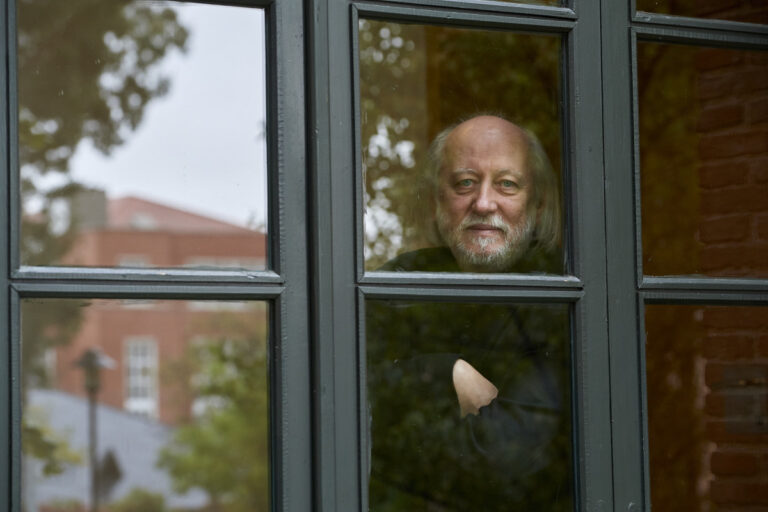How regular stress affects the body and why we need to be especially careful with recommendations from social media right now
Dozens of diets, weight loss injections, marathons, intermittent fasting, celery juice — in an attempt to get or regain the body of their dreams, many resort to risky steps. Social media throws up categorical recommendations and offers to “get rid of excess weight without making any effort.” But does it work?
We met with nutritionist, founder and CEO of The Body School, a service that shapes relationships with the body and food. For 10 years, the service's team has been helping people form eating and exercise habits that affect their reflection in the mirror, mood, health and well-being.
Sofia Rozhko told why there is no “magic pill”, where to start making changes, and what to do if they are not immediately noticeable.

Sofia, tell us about yourself. How and why did you get into nutrition?
When I first became interested in nutrition, I didn't think it would become my profession. It all started with my own request. At the age of 20, I gained weight quite dramatically. I think it was due to my lifestyle, type of diet, and unhappy love. But it gave me the impetus to find an effective way to lose weight and take care of my body in the future.
Why food, and not, say, sports? Because since childhood I had a difficult relationship with food against the background of my family. My grandparents experienced famine and talked a lot about it. At home, everyone ate in very large portions, kept stocks. Food was a strong cult in the family. And of course, we didn't have any food culture.

I only got hedonistic pleasure from food when I ate something very sweet, very salty, or very fatty. For example, sausage was the only meat I could eat. I drank coffee and tea with sugar. I didn't eat vegetables at all. I added mayonnaise to everything.
My journey to loving other foods took several years, as I introduced my body to new tastes. It was then that I realized how strong genetic memory is and what a complex context we have. However, it made me realize that I need to work deeply — at the level of changing the paradigm of thinking about food.
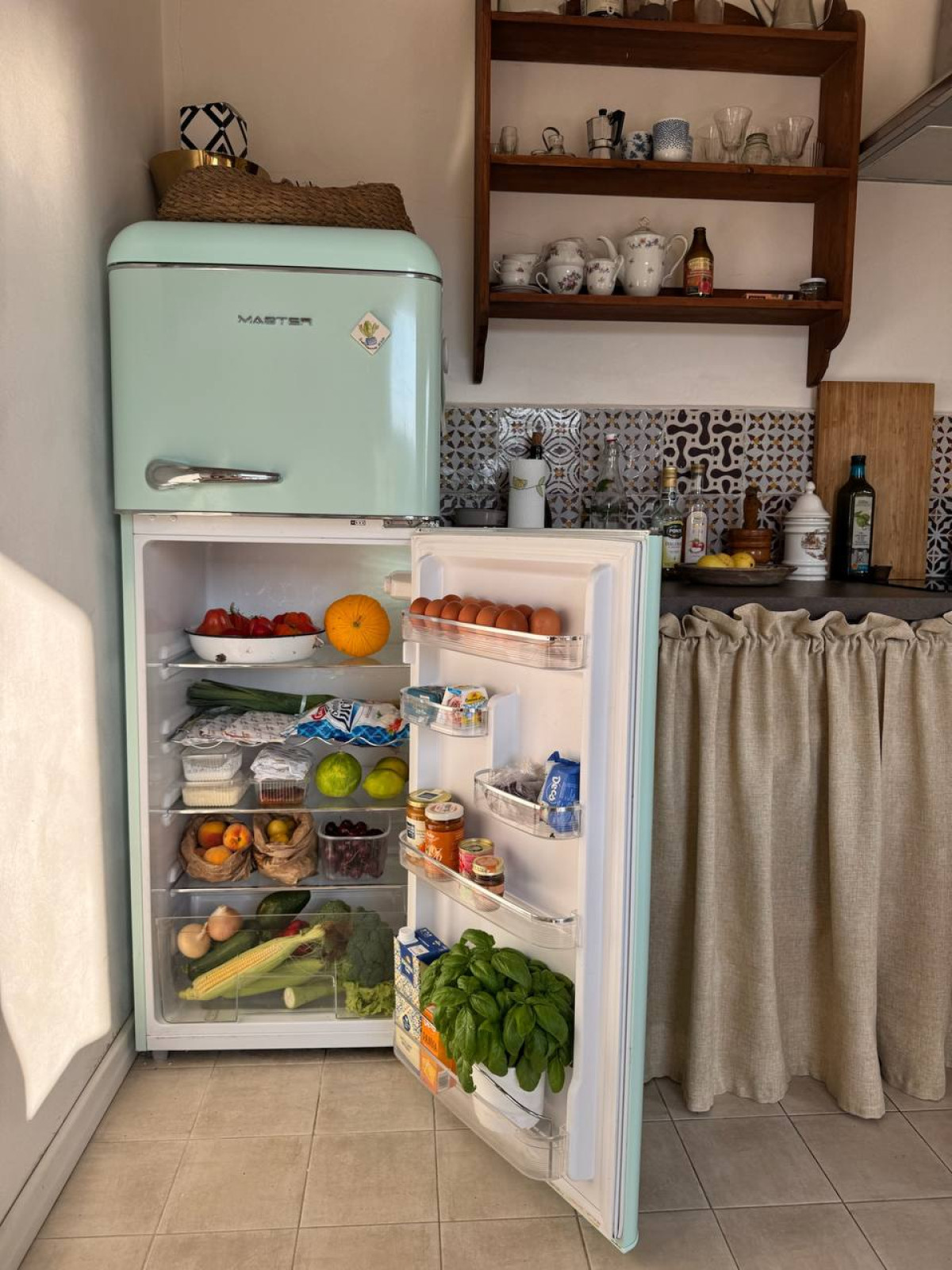
Now your students have nutritionist supervisors and constant support. How did you motivate yourself?
My appearance was the biggest motivation for me, because when I suddenly gained weight, my skin got really bad and I didn't like myself. This motivation was enough to go to the gym in the morning, then go to university, then to work, and after work come home and cook. I quickly realized that I had to carry food with me, because at that time there was no way to eat quality food anywhere, not even in terms of finances, but because there was no food anywhere that I needed.
If we move from you to the people you work with now, what are the most common requests they come up with?
What worries people the most is that their body is changing, and they don't understand why it's happening the way it is. It's a kind of inability to control their body. Many continue to live the way they've always lived, but their body is reacting differently.

Is it age-related changes or stress?
Both. Over the four years of full-scale invasion, in addition to the chronic stress we live with, we have also grown older (Smiles). I don't want to admit it, but if a person was 36 at the beginning of the invasion, and now they are 40, these are noticeable metabolic changes.
And what does this loss of control over the body lead a person to?
It is often very frightening – as if the rules of the game have changed, but you don't know what works now. This affects motivation – a person falls for the simplest dopamine pleasures: eating, drinking, scrolling through social networks.
They may also think they are doing everything right, but in reality they lack up-to-date knowledge. Something they learned before or saw on social media may be outdated or incorrect. And this fear of “nothing will help me anymore” is very frustrating for people.
Did this change during the full-scale invasion? Could this loss of control be attributed to the fact that people lost too many supports?
That's definitely changed a lot in recent years. It seems that the less you can control external events, the more you switch to internal control. But the body is not 100 percent under control, because if you have a sleepless night, you can't compensate for it. So we shouldn't try to control ourselves completely – that only leads to neuroses.

When you tell people that you can't control everything, and that changes in the body are influenced by your entire lifestyle, not just food or exercise. How do they react to that?
A person has to sink to their inner depths to fully accept this. There are all the phases: bargaining, resistance, disappointment… Until we reach acceptance.
Some people are more ready for this, some are less. But more and more people are accepting the fact that things will not be the same as before: neither in terms of the speed of results, nor in terms of the amount of resources to take certain actions.
But from a physiological point of view, this actually works only in a positive way, because the slower we lose weight, the more time the body has to rearrange all metabolic processes. When a person loses weight quickly enough, their body does not have time to adapt to this and then it is very difficult to maintain the result.
Well, it's worth shifting the focus from weight to body quality. Because sometimes people strive for a specific weight and don't pay attention to the condition of their skin, body shape, and well-being. And that's all we can work with.
About this obsession with weight. Many people formulate their request precisely as weight loss or weight loss, without thinking about the quality of the body, health… And here some kind of “magic buttons” come to the rescue: fasting, bowel cleansing, weight loss injections, keto and paleo diets, etc. How do you work with those who are not ready for a smooth path?
Despite the fact that more and more so-called workarounds appear, none of them work. Even the popular weight loss injections today (although they are a good drug for indications) will likely lead to even more weight gain after stopping the intake. We have a lot of such cases at school.

When it comes to finding an easier way, I like to use the analogy of pregnancy. It takes a woman about 9 months to carry a baby. We can't take 9 women and ask them to carry it in a month. It's the same here.
You can look for some other options, but there is no proven method that would give long-term results. Our brain works in such a way that it is easier for us to limit ourselves to a certain period and get a quick result. But it will not be effective. If there is no system, there is no progress.
Can these intensive weight loss methods be harmful?
This is very exhausting for the body. And it's really scary, because we have cases where it takes 6-8 months of work for a person to notice the first results. While the body is recovering.
What happens to the body of a person who underfeeds themselves or gives injections? What does this lead to?
To put it simply, our body consists of a fat and muscle component. That is, there is a certain amount of fat (normal for men and women) and a certain amount of muscle (normal for men and women). So, muscle is metabolically active. This means that muscle mass requires a large number of calories both on training days and on rest days.
That is, if I am a muscular person, then even on days when I do not train, my average calorie expenditure will be higher than that of the same person, the same weight as me, but if they have less muscle and more fat. And this affects our daily metabolism.
As women age, during pregnancy, during stress, from fasting, diets and weight loss injections that are not supported by lifestyle changes, we lose, first of all, muscle mass. That is, our body supposedly loses weight, but at the same time – begins to spend fewer calories. And even if we return to a normal diet after a diet, our body can already spend fewer calories per day. Its basic energy expenditure falls. And with each attempt at such a diet, this indicator decreases to the point where the body is able to process such a small amount of calories that we simply physiologically cannot eat enough. This is called metabolic adaptation.
And in order to get out of this metabolic adaptation, we need to increase the amount of high-quality protein and complex carbohydrates, start gaining muscle mass, and only when the weight increases, we will be able to eat, build muscle mass, only after that will it be possible to reduce the proportion of fat. This is a difficult process. Often, under the influence of stress, people cannot return to their usual routines: training and nutrition, and therefore find themselves in this situation.

If a person is stressed and has dropped out of the training process and is not paying attention to nutrition, what is the best way to get them back? Are there ways to do it gently?
A person needs to understand that if they are inspired to change, the next reaction of the brain may be: “What can I do right now to get the fastest results?” That's how people sign up for programs, marathons, start diets. They want to do everything in one day, and, of course, they lose motivation after a week.
It is important to understand that if you conditionally have 100 units of resource, you need to build systematic actions that will be repeated over a long period of time. And only in this way can you get a result. That is, it is better not to spend your 100 units of resource in the first week, but to give a penny every day.

The real result is not in intensity, but in small but correct actions. For example, start with 10 minutes of training, but three times a week. Pay attention to the quality of breakfast, if all other meals cannot be changed yet. Everything is gradual.
But as someone who has been working in this field for 10 years, I know that doing it on your own is very difficult. We often need support when learning new skills in any field.
We need support, which is why we go to universities, take courses, and work with specialists, because we need someone around us to watch how we do it and tell us that we are doing everything right. To highlight the next steps and tell us how to build a strategy more effectively going forward.
So it turns out that a person constantly needs to update their knowledge? Because approaches change.
Fundamentally, everything remains the same: you need to eat protein, fiber, drink water. But some things are really being updated. Once upon a time, people talked about red meat causing cancer, or about the harm of cholesterol. Now we see that with more research, this idea is no longer correct. So, perhaps we should not add new knowledge to a person, but rather put what is on the shelves. And throw away the unnecessary.
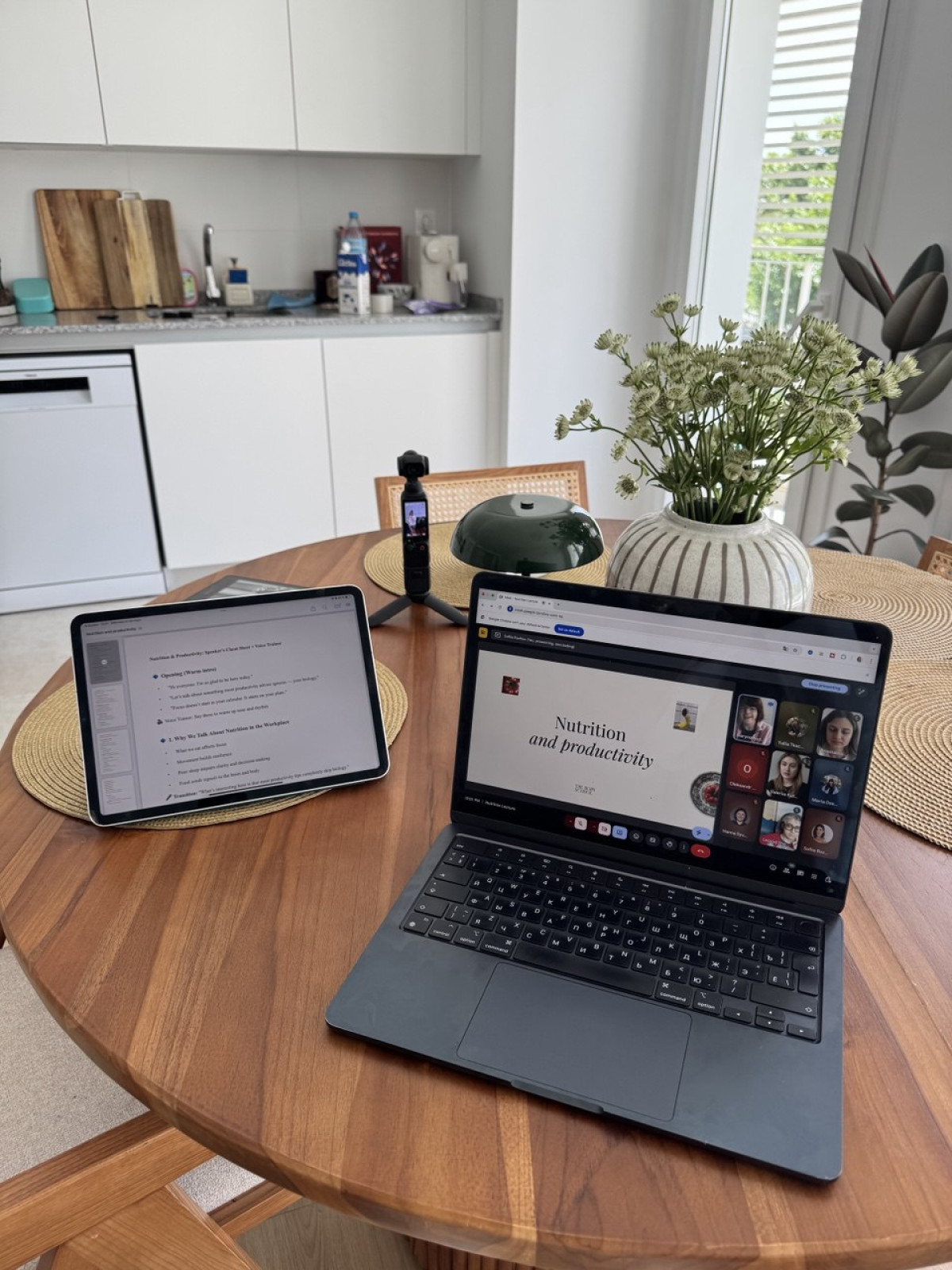
We don't give people 57 one-and-a-half-hour lectures so that they learn everything, but we focus on what that person specifically needs to know. We personalize the evidence. For example, is intermittent fasting bad? No. But it doesn't suit most people. Or it may suit one person at a certain stage of life, but not another.
Recently, a new product, The Body: Pre-Care, appeared on the service. Only 14 days. Where did the idea come from?
Pre-Care grew out of a desire to start taking care of yourself, but not spend too much on it. Because now it's hard for people to make a long-term commitment to themselves. It's scary to take on something that can take too much effort.
We created Pre-Care so that a person can start the journey and gradually build self-confidence — that they can do it, that it works for them. This way, it will be easier for them to take bigger steps in the future.
Speaking of my personal need, I wanted to show how caring our program is, that we're not calling for “finally pulling yourself together” or anything like that.

If I were asked to tell a classic story of someone who came to The Body program, what would it be?
I often conduct free zoom consultations before programs when people share their request. Most often, they say that they already know everything, they know how to eat, this is not their first program, but they don’t see the result. What are the chances that The Body program will help them? And in 90% of cases, when we start asking more questions, it turns out that a person is either not doing what they need, or is doing what they need, but not systematically enough, or systematically, but not for long.
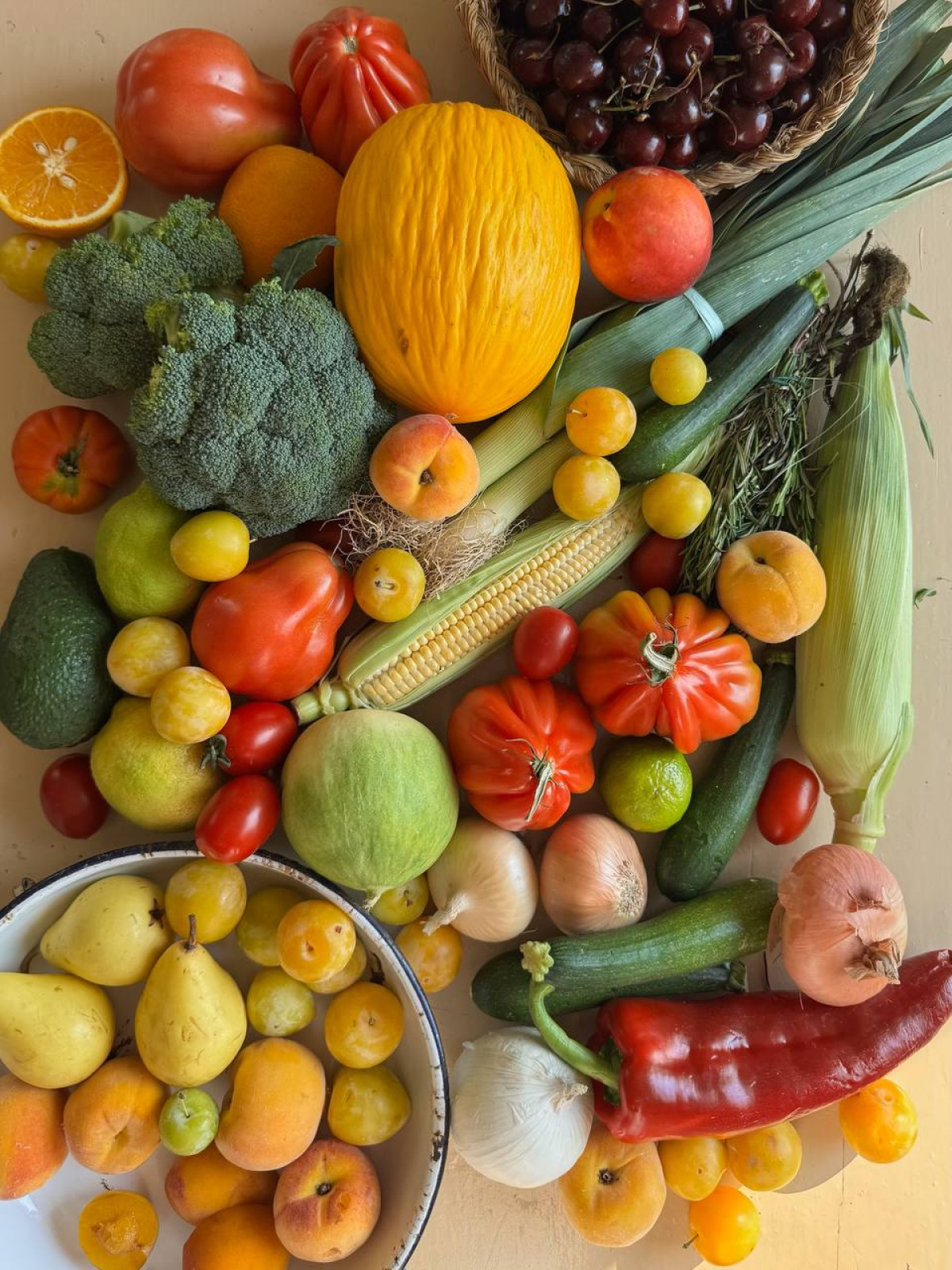
What helps with the program? People have a structure, an understanding of the plan — each has their own. We monitor all processes, and if there is no quick result and the person gets frustrated, we explain why the person needs more time, why it is impossible to speed up the physiology, etc.
On the program, people understand how the system works. Because often independent knowledge about food comes down to the fact that it is best to eat less, and exclude everything, and in no case should you eat McDonald's. And all this creates a false understanding of the nutrition process. That is, it is important to systematize knowledge and approaches so that there is no mess in your head, and then it is much easier to move forward.
I believe that at a stage when you already have a great mental and stressful load, you cannot both perform and coach yourself on this issue. Therefore, a popular review about the program: “I was finally able to focus on actions, and not think about whether I was doing it right. I knew that a strategy was being built for me, so I was able to implement all my resources into actions. And in the end, get a result.”
What food myths are the most “popular” right now?
People are still afraid to eat carbs. Some people still think that pasta, rice, pizza, bread, potatoes are bad. I still meet people who you tell to put some bread on, and they say that they are trying to eat less bread now. Okay, less, but you have fish and broccoli on your plate. There is no bread at all. Put at least one piece.
The second most popular is the fear of sweets. People are afraid that they like sweets, or that they have a hard time giving up sweets, or that they want to end every meal with a sweet. Although this cannot be the norm either.
The desire to overeat sweets, to give them up completely, to stop eating sugar is an unrealistic desire, a complete utopia.
Now the desire to cover all deficiencies with dietary supplements is gaining momentum. People do not pay attention to what they eat and ask for medications.
Another myth is that if I gain weight, then something is wrong with my hormones, so there is some problem in my body. And most often, people who think like that are very disappointed when they get tests and see that everything is great with their hormones, they are healthy. Because then there is nothing to blame for your changes and you understand that this is a way of life after all.
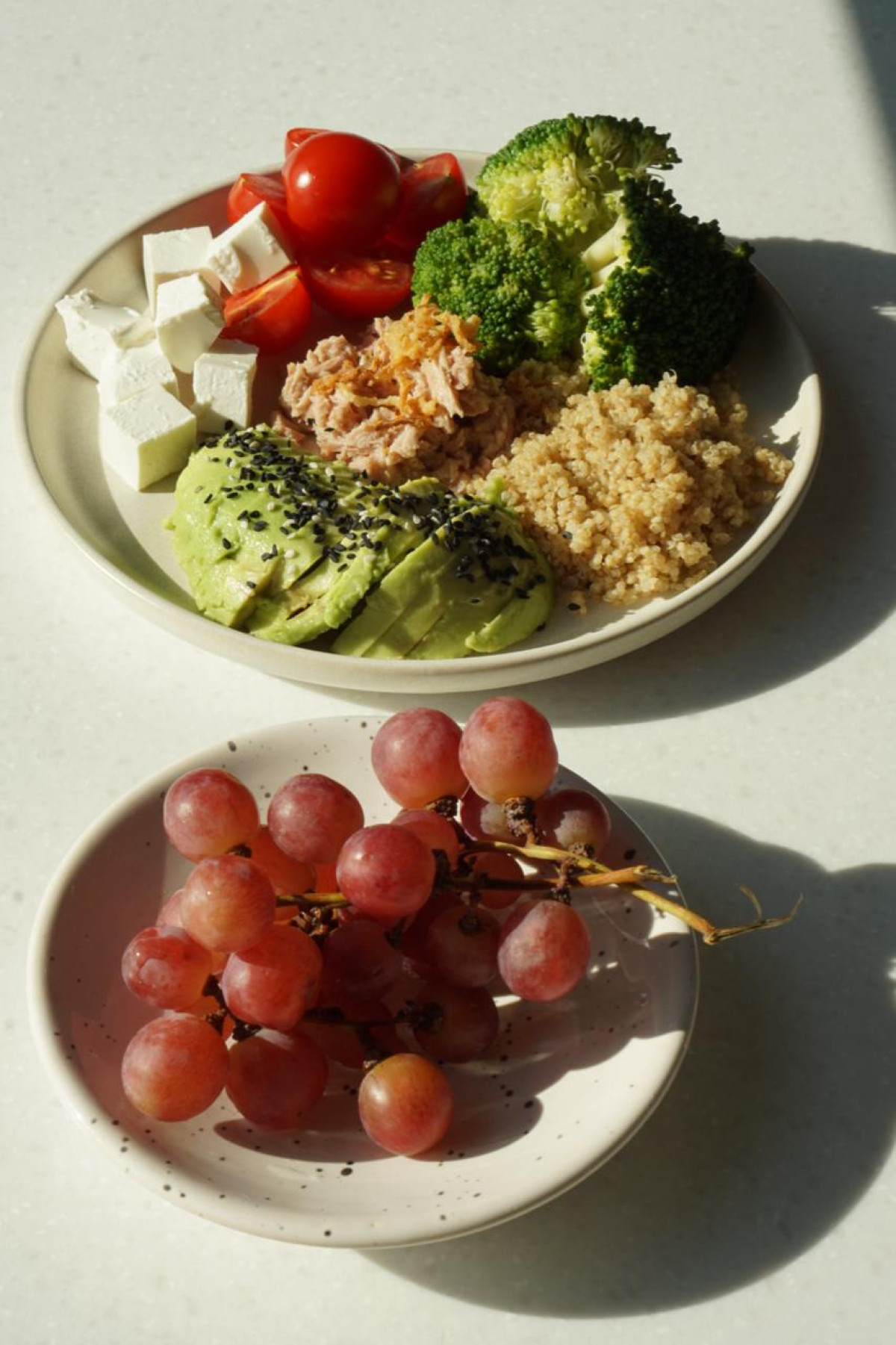
And I remembered one more thing! Run every morning. There is still a myth that in order to lose weight, you need to run in the morning on an empty stomach, because it supposedly burns fat.
You admitted that your relationship with food began with family habits. I think many people are familiar with this. Now The Body's mission is to change the eating routines of generations. Tell us a little about how you came to this, and do you have any cases where it really worked out that both parents and children came to a balanced diet together?
Yes, this is indeed our main goal, because I believe that when a person ecologically changes their eating habits, they can pass these habits on to other generations. Because, for example, if I like healthy food, I eat according to the principles of a balanced plate, I eat vegetables regularly, we always have fruit at home for snacks, I drink enough water, I find it tasty, I like it, I can easily pass it on to my child.
If, for example, I am on a diet and suffer from what I am doing, I do not want to pass this on to my child, because I do not want her to suffer. And so I will be on a diet, and I will buy ice cream for my child, because I do not allow myself to have it. This forms incorrect eating behavior in both me and my child.
And when you change your eating habits gradually, gently, taking into account your needs, taking into account your health, taking into account cultural characteristics or family traditions, you like what you do, you like how it tastes, how it looks, how you feel, your quality of life changes. And what you like, you want to spread further. And then these new routines will begin to grow to partners, children, parents, depending on how ready the other participants in the process are for this.
We have many stories when people come to the program and then bring their parents. In general, I believe that this is the highest level of trust in us – to recommend us to parents, children, relatives, partners. That is, it turns out that one person who has completed the program can gradually influence the habits of others: because they share new recipes, cook something, tell stories. And this can gradually influence the food culture of the entire environment.
Sofia, you look beautiful. But do you have any difficulties with your body and food? What are they? And how do you deal with them? We all want to know that you are also a living person (Laughs ) .
My physical form often changes, depending on how I train. Just recently I bought myself a dress that fit me great. And yesterday I put it on, and I feel that it presses on my hips, because I trained more. My body changes very quickly.
For a long time I did not accept myself. For example, I have quite thin skin, and on my buttocks, especially in sunny weather or under artificial lighting, cellulite is noticeable. I can’t do anything about it. For many years I tried to somehow “overcome” it, and then I realized that this is a feature of my physique. And I am not ready to live with a minimum percentage of body fat just so that I don’t have cellulite, but at the same time I haven’t had my period yet, most likely.
It was also very difficult a few years ago when I was diagnosed with depression. Because I lost a lot of the results I had gained through sports for many years, my muscle mass, and I had to start again with short workouts because I couldn't last more than ten minutes because I didn't have the strength. It frustrated me a lot. But I always treat my body not only as a physical object that may seem attractive or unattractive. Thanks to my body, I move, so I have a lot of gratitude to it for the fact that it works and I can live a quality, full life.
We all see our own shortcomings, but there are things that we just have to accept. Everyone has their own physiological, morphological characteristics. Sometimes clients want “legs like those of some famous people.” But this is impossible. You need to understand the areas where you have an impact and those where you don’t. And where you don’t have an impact, calm down.

Finally, if you could give advice or wish something to those who are currently in a difficult relationship with their body, where would you start?
Eating disorders can always have both a physiological and psychological aspect. It is worth analyzing your childhood and your entire life – why might you have developed a difficult relationship with your body and food? At what points does this relationship deteriorate?
And there can be healthy relationships, but the process of nutrition is not organized. Because if we come home in the evening super hungry, and we only have frozen pizza, we can be super motivated, but still cook what is easier organizationally. In general, to work with nutrition, you can turn to a nutritionist and a psychologist. Who to go to first – everyone goes through this path individually.




